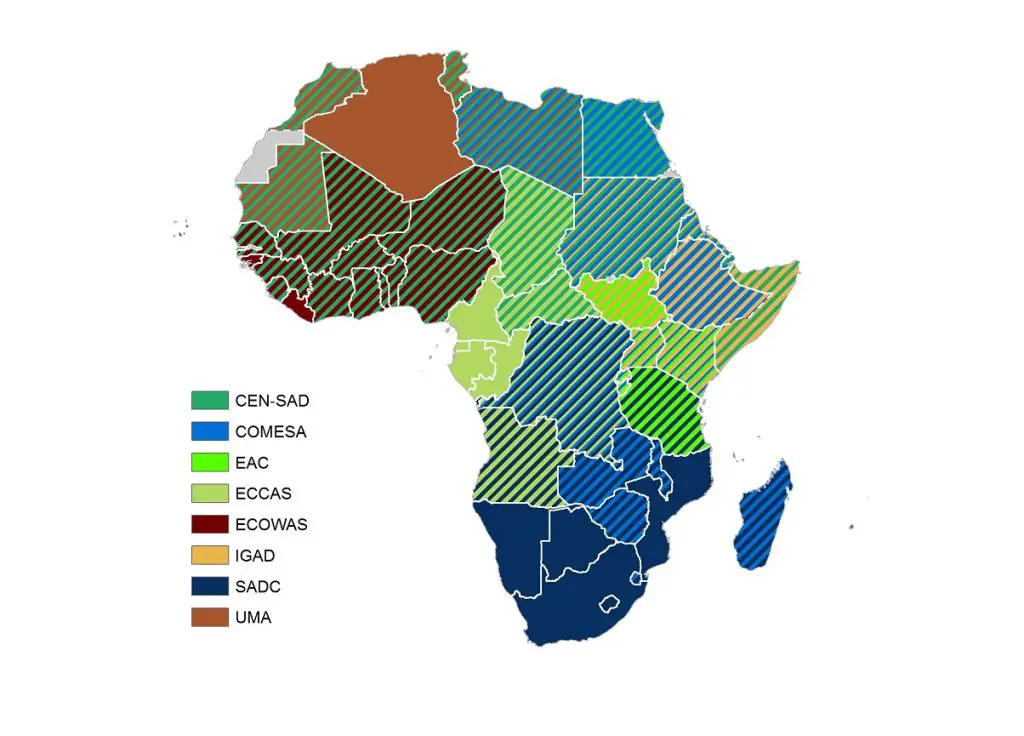With the covid-19 coronavirus global crisis affecting, Africa could be hit harder with a heavy and durable economic toll.
This hit will threaten progress and prospects, widen inequalities between and within countries and worsen current fragilities.
To survive this, the Economic Commission for Africa (ECA) says that African countries need support in preparing for the health crisis, and for the economic fallout.
Coronavirus: African leaders stuck with neglected, outdated healthcare systems
“The measures being taken in Asia, Europe and North America such as physical (social) distancing and regular hand washing will be a particular challenge for countries with limited internet connectivity, dense populations, unequal access to water and limited social safety nets,” notes ECA.
In line with the steps being taken across the globe, African countries are preparing for the worst effects of this pandemic.
To help Africa survive the crisis, ECA says that the G20 must support an immediate health and human response.
“G20 leaders should support and encourage open trade corridors, especially for pharmaceuticals and other health supplies, as well as support for the upgrade of health infrastructure and provide direct support to existing facilities. This will enable countries to focus on prevention as much as possible and start building curative facilities. Support should be provided to WHO and CDC Africa with funds channelled through the Global Fund, GAVI and others,” adds ECA.
In addition, ECA says that G20 leaders should support public health campaigns and access to information including through an expedited private sector partnership for internet connectivity to enable economic activity to continue during social distancing measures and to support the effective sharing of information about the pandemic.
The G20 should also deliver an immediate emergency economic stimulus to African governments in their efforts to respond to the covid-19 pandemic.
ECA says that G20 leaders should announce a US$100 billion (in addition to the $50bn already committed) to fund the immediate health response, social safety nets for the most vulnerable, feeding for out of school children, and to protect jobs.
Coronavirus shakes economies, world forced to change perspective on Africa
“As a proportion of GDP this is consistent with measures taken in other regions. To ensure immediate fiscal space and liquidity, this package should include a waiver of all interest payments, estimated at US$44 billion for 2020,” adds ECA.
Another proposal is that the G20 leaders should support a waiver on principal and interest for African fragile states such as the Sahel, Central African Republic and others who are already struggling with the burden of debt and have limited fiscal space.
ECA says, “ G20 leaders should endorse for enhanced predictability, transparency and accountability of financial flows so finance ministers can plan effectively and civil society stakeholders can help track flows to ensure reach those most in need.”
To cushion workers, ECA notes that the G20 should implement emergency measures to protect 30 million jobs immediately at risk across the continent, particularly in the tourism and airline sectors.
G20 leaders should take measures to support agricultural imports and exports, the pharmaceutical sector and the banking sector. An extended credit facility, refinancing schemes and guarantee facilities should be used to waive, restructure and provide additional liquidity in 2020.
ECA says that G20 leaders should support a liquidity line available to the private sector operating in Africa to ensure essential purchases can continue and all SMEs dependent on trade can continue to function.
“ G20 leaders should ensure that national and regional stimulus packages covering private and financial systems include measures to support African businesses through allowing for the suspension of leasing, debt and other repayments to global businesses,” the UN body adds.
ECA estimates that the unfolding coronavirus crisis could seriously dent Africa’s already stagnant growth with oil exporting nations losing up to US$ $65 billion in revenues as crude oil prices continue tumbling.
Away from the G20, the CEO of the African Union Development Agency’s New Partnership for Africa’s Development (AUDA-NEPAD), Ibrahim Assane Mayaki, says Africa needs to reduce its high trade dependence on non-African partners by implementing the African Continental Free Trade Area (AfCFTA), and fast.
Mayaki, a former Prime Minister of Niger, says extension of value chains across the continent will help lay the groundwork for industrialization.
In an opinion piece in Project Syndicate, he says that Africa is the least integrated continent with intra-African trade accounting for less than 16 per cent of the continent’s total trade.
When fully operational, the AfCFTA could boost intra-African trade by 60 per cent in just three years.
Mayaki adds that the AfCFTA will be an effective shock absorber as long as the coronavirus pandemic, and uncertainty about its course, keeps slowing and depressing the global economy.
“It will also make Africa an attractive proposition when the global economy turns around. The continent has no time to lose,” he adds.
